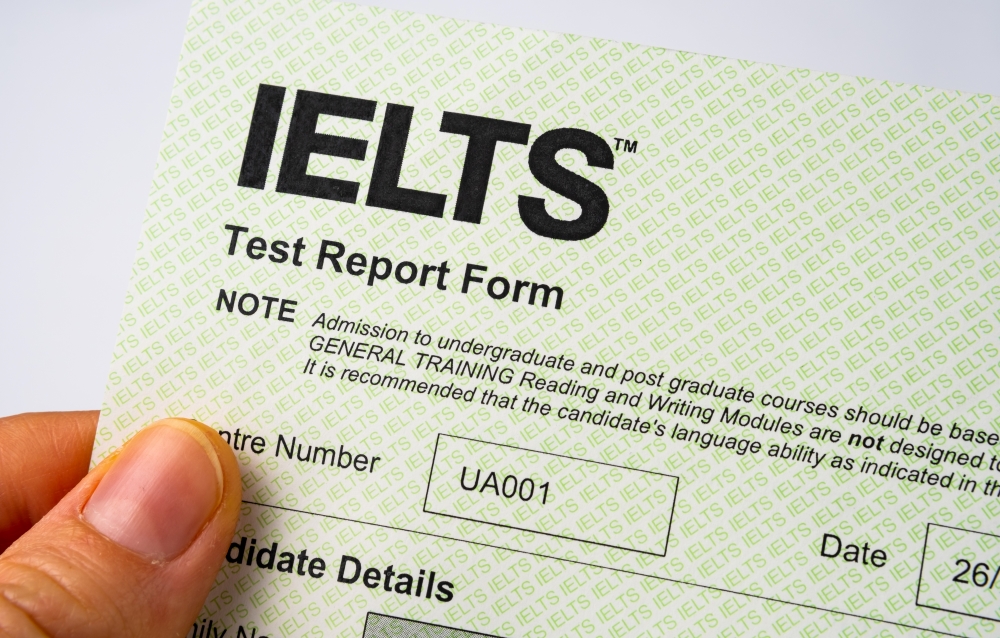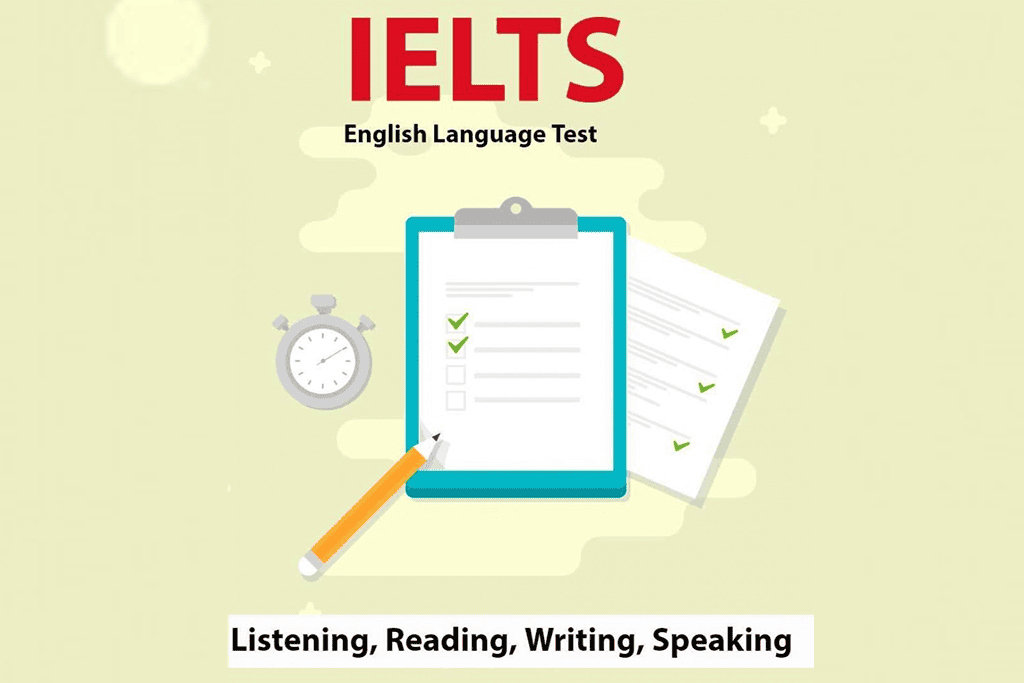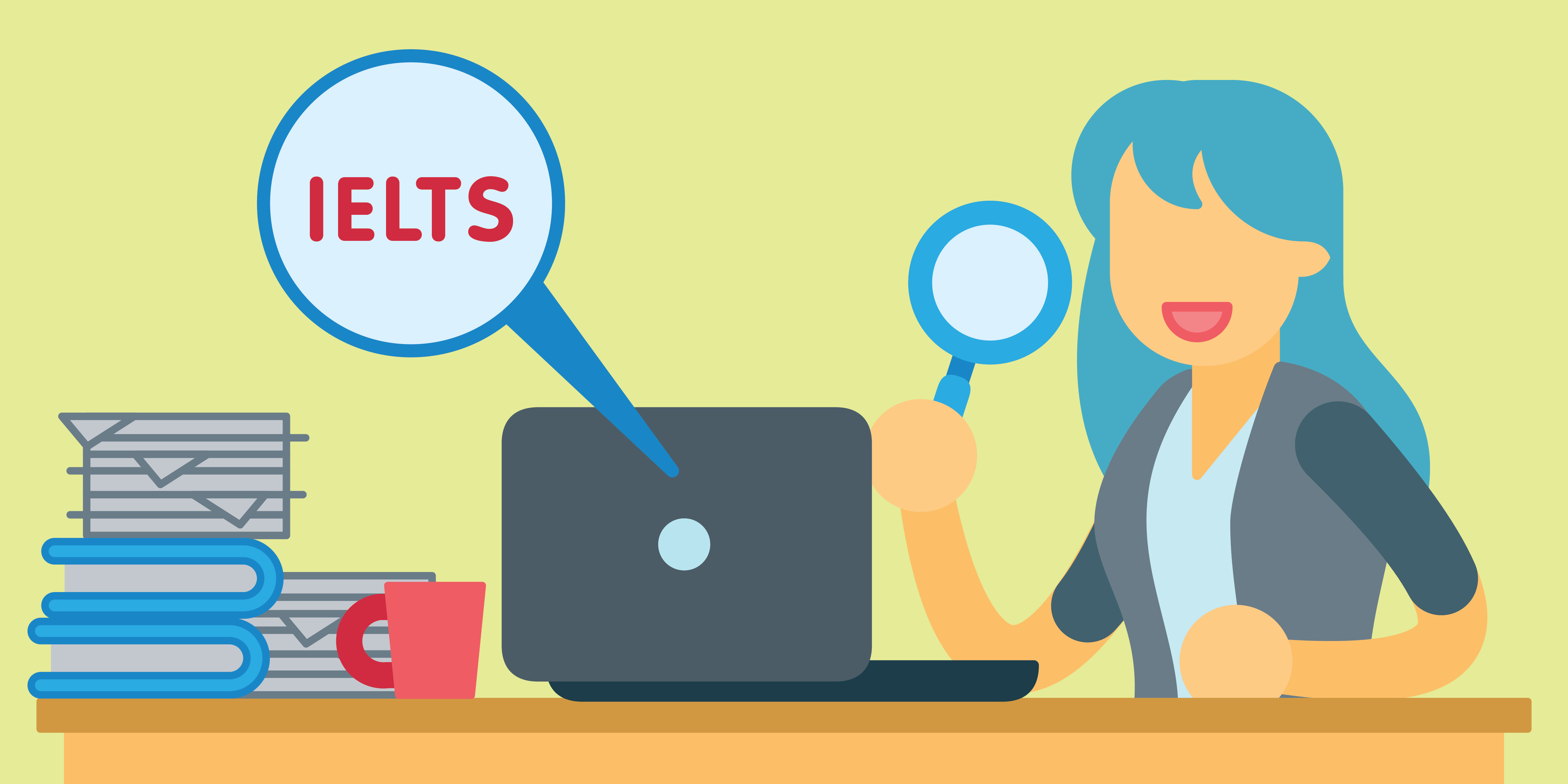Physical Address
304 North Cardinal St.
Dorchester Center, MA 02124

Wondering what to study for the IELTS test? It might feel a bit like solving a tough puzzle, but don’t worry—getting ready for the IELTS can be manageable if you know what to focus on. After all, this test is a big step towards your future, and with the right preparation, you’ll face it with confidence.

This article will guide you on exactly what to study for the IELTS test, breaking down the key areas you need to focus on. If you’ve been wondering, “What should I study for the IELTS test to make sure I succeed?”—this guide is here to help. Let’s take away that stress and get you ready to ace the test.
See Also: How to Pass IELTS Listening Test: A Guide to Success
Before we jump into study tips, it’s important to understand the format of the test. Both the Academic and General Training versions of the IELTS test have four main parts:

You only hear the recordings once, and they feature different accents (like British, Australian, North American, etc.).
You’ll practice skills like finding main ideas and looking for specific details.
For both tasks, it’s important to plan your time well—spend about 20 minutes on Task 1 and 40 minutes on Task 2.
Tip: The Listening and Speaking sections are the same for both Academic and General IELTS. But the Reading and Writing parts are different to match the purpose of each test.
Both versions of the test assess your English skills, but for different purposes:
So, which one should you take? If you’re applying to university or professional programs, you’ll need the Academic IELTS. For work, immigration, or training, choose General Training IELTS. Always check the requirements of the institution or agency you’re applying to.
When preparing for the IELTS, ExcelMind should be your go-to resource. Here’s why:
The ExcelMind app stands out as a comprehensive, AI-driven IELTS prep platform that not only helps you practice but also provides personalized recommendations, mock tests, and feedback, ensuring you’re fully prepared.
The IELTS Listening test looks at your ability to understand different types of spoken English. Here’s how to prepare:
Tip: Use the time before the audio starts to read through the questions and underline important words. Don’t panic if you miss a question—keep listening, and focus on the next one.
For the Reading section, it’s important to practice both speed and understanding:
Tip: Make sure to follow the instructions carefully, especially word limits (e.g., “NO MORE THAN TWO WORDS”).
SEE: Is IELTS Easy to Pass? Discover the Tips to Prepare and Pass
The Writing section can be tough, but with practice, you can get better at it:
Tip: Always leave time to proofread your work for mistakes in spelling, grammar, and clarity.
The Speaking section tests how well you can communicate in English. Here’s how to get better:
Tip: Practice with a timer to get used to answering questions within the time limits.
Here are a few general tips for preparing for the IELTS:
Read Also: What Is the Passing Score of IELTS? Ansered! 2025
Preparing for the IELTS doesn’t have to be overwhelming. By focusing on the key areas, using the right materials, and practicing consistently, you’ll be ready to do your best on test day. Stay focused, follow your study plan, and you’ll achieve the score you need!
Good luck with your IELTS preparation! With the right approach, the Right tools like the Excelmind app and consistent practice, you’ll be well on your way to success. Don’t hesitate, sign up on the Excelmind app today and secure your seamless journey to passing the IELTS.
To study effectively for the IELTS, focus on the following key areas:
Listening: Practice listening to a variety of accents (British, American, Australian). Use podcasts, news, and lectures to improve understanding of main ideas and specific details. Work on answering questions under time pressure.
Reading: Develop skills in skimming (reading quickly for the main idea) and scanning (looking for specific information). Read a variety of materials such as newspapers, magazines, and academic articles. Expand your vocabulary and practice different question types like True/False/Not Given.
Writing: For Task 1 (Academic), practice describing graphs, charts, or diagrams. For Task 2, practice writing essays on various topics (e.g., education, health, technology). Focus on structure, coherence, and using a variety of vocabulary and grammar.
Speaking: Practice speaking regularly in English. Focus on fluency, coherence, and answering questions clearly. Record yourself and evaluate your pronunciation and grammar. Use speaking prompts to get comfortable with the test format.
Additionally, use official IELTS practice materials, take timed mock tests, and seek feedback on your writing and speaking. This will help you improve and gain confidence in each section.
To prepare effectively for the IELTS exam, focus on enhancing your English skills in four key areas: listening, reading, writing, and speaking. Begin by familiarizing yourself with the test format and practicing with sample questions. Regularly engage with English media, such as news articles, podcasts, and academic journals, to improve comprehension and vocabulary. Consider enrolling in IELTS preparation courses or utilizing reputable study materials to structure your study plan. Consistent practice and exposure to diverse English content will build your confidence and proficiency for the exam.
Yes, 1 month can be enough to prepare for the IELTS exam, but it depends on your current level of English proficiency. If you are already at an intermediate or advanced level, you can use the month to focus on familiarizing yourself with the test format, practicing each section (Listening, Reading, Writing, and Speaking), and addressing any weak areas.
However, if you are a beginner or need to improve significantly in certain areas, 1 month may feel rushed. In this case, it’s essential to create a focused study plan and dedicate significant daily time to practice. Consistency, targeted practice, and using reliable study materials, such as official IELTS resources, will maximize your chances of success in a short time.
To summarize: 1 month can work if you’re already familiar with English, but for beginners, more preparation time may be needed.
In the IELTS Speaking test, Part 1 is where you’ll introduce yourself. Here’s how to do it:
Start with a greeting: When the examiner asks you to introduce yourself, begin by saying something like:
“Hello, my name is [Your Name]. It’s nice to meet you.”
“Good morning/afternoon, I’m [Your Name].”
Mention where you’re from: You can share where you’re from or your current location:
“I’m from [City, Country].”
“I live in [City] at the moment.”
Talk about your background (briefly): You may be asked about your studies or work, so be ready to share:
“I’m currently studying [subject] at [university/school].”
“I work as a [job title] in [industry].”
Mention a hobby or interest: You might be asked about what you like to do in your free time, so it’s good to have a few interests ready:
“In my free time, I enjoy [hobby], like reading, traveling, or playing sports.”
Keep your answers short, confident, and clear. This part is just about introducing yourself and making the examiner feel comfortable. Don’t memorize answers—try to speak naturally and make it a conversation.
In the IELTS Speaking test, Part 1 is where you’ll introduce yourself. Here’s how to do it:
Start with a greeting: When the examiner asks you to introduce yourself, begin by saying something like:
“Hello, my name is [Your Name]. It’s nice to meet you.”
“Good morning/afternoon, I’m [Your Name].”
Mention where you’re from: You can share where you’re from or your current location:
“I’m from [City, Country].”
“I live in [City] at the moment.”
Talk about your background (briefly): You may be asked about your studies or work, so be ready to share:
“I’m currently studying [subject] at [university/school].”
“I work as a [job title] in [industry].”
Mention a hobby or interest: You might be asked about what you like to do in your free time, so it’s good to have a few interests ready:
“In my free time, I enjoy [hobby], like reading, traveling, or playing sports.”
Keep your answers short, confident, and clear. This part is just about introducing yourself and making the examiner feel comfortable. Don’t memorize answers—try to speak naturally and make it a conversation.